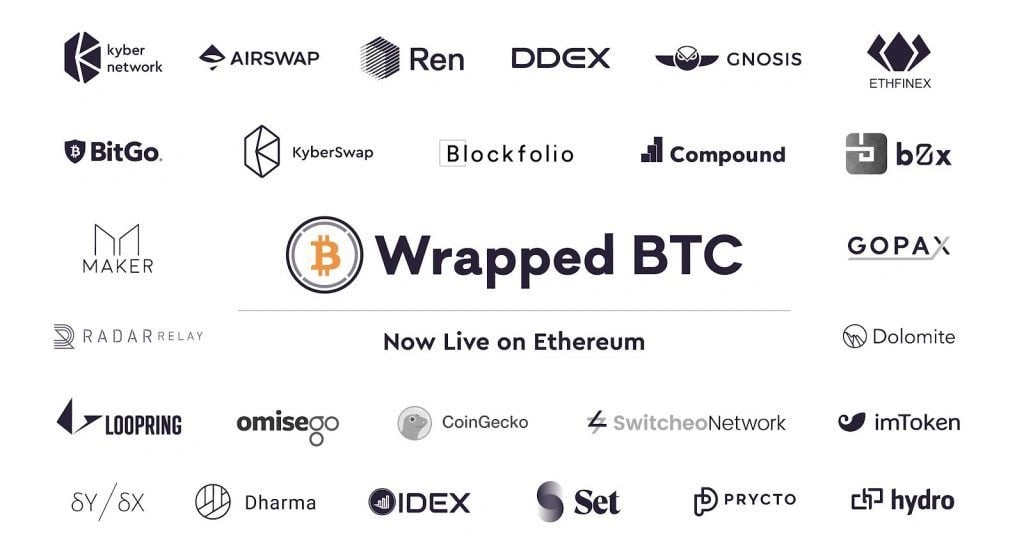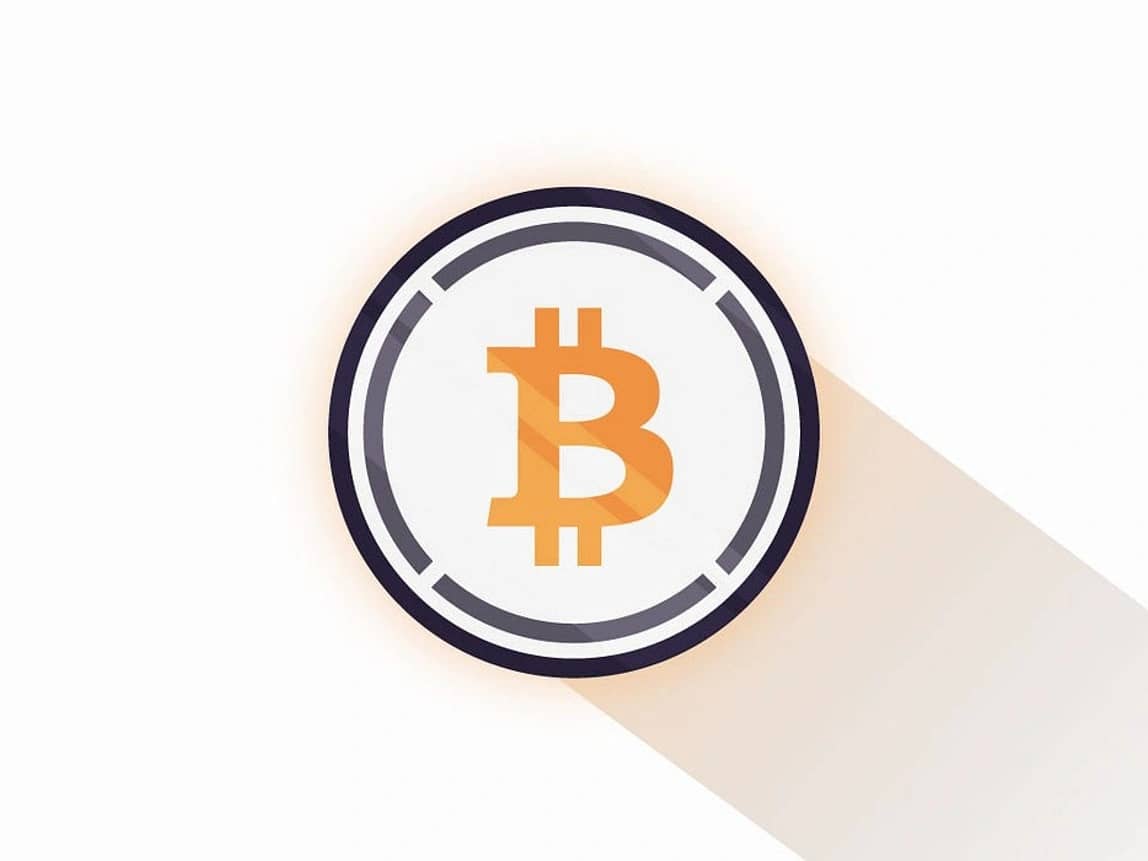위키 구독하기
Share wiki
Bookmark
Wrapped Bitcoin (WBTC)
0%
Wrapped Bitcoin (WBTC)
**Wrapped Bitcoin (WBTC)**는 비트코인과 1:1로 연동되어 BTC 보유자가 이더리움의 탈중앙화 금융 (DeFi) 생태계에 참여할 수 있도록 하는 이더리움 기반 토큰(ERC-20)입니다.
이는 탈중앙화된 암호화폐와 전통 금융 간의 격차를 해소하는 디지털 자산입니다. WBTC는 비트코인과 동일한 경제적 속성을 가지며 사용자에게 가치 저장, 투자 기회 및 유동성을 제공합니다. WBTC의 출시는 사용자가 비트코인과 이더리움 네트워크 모두의 이점을 누릴 수 있도록 합니다. [1][2][3]
역사
WBTC가 속한 Wrapped Tokens 프로젝트는 BitGo, Kyber Network, Ren(이전 Republic Protocol)의 세 조직에 의해 설립되었습니다. [4][5][6]
2018년 10월 26일에 시작된 이 프로젝트의 목표는 이더리움에서 비트코인에 대한 새로운 애플리케이션 사용 사례를 가능하게 하는 ERC-20 토큰을 구축하는 것입니다. WBTC는 이더리움 스마트 계약 개발자, 탈중앙화 거래소 주문 및 이더리움 생태계의 다른 부분이 1:1 페깅 코인 역할을 하여 비트코인의 유동성에 직접 노출될 수 있도록 ERC-20에 따라 비트코인을 표준화하려는 시도입니다. [8][10]
2013년 Mike Belshe가 공동 설립한 BitGo는 기관 디지털 자산 보관, 거래 및 금융 서비스 회사입니다. WBTC 개발자 중 하나이며 토큰을 발행하는 데 필요한 토큰과 키의 원래 보관자입니다. [7][4]
Kyber Network는 암호화폐 토큰과 DeFi 애플리케이션의 통합을 용이하게 하도록 설계된 온체인 유동성 프로토콜입니다. 2017년 Loi Luu, Victor Tran, Yaron Velner가 설립한 Kyber Network는 싱가포르에 기반을 두고 있으며 Ren의 파트너입니다. Kyber Network는 WBTC 네트워크의 판매자 역할도 하며 BTC 준비금에 대한 토큰의 1:1 비율을 유지하기 위해 WBTC 토큰을 발행하고 소각하는 역할을 합니다. [6][4]
Ren은 2017년 Taiyang Zhang과 Loong Wang이 설립한 회사로, RenBridge 및 RenVM과 같은 솔루션을 통해 암호화폐 자산과 DeFi 애플리케이션의 교차 블록체인 통합에 중점을 둡니다. [4][9]
2019년 1월, 초기 WBTC 백서가 발표되었고 AirSwap, Dharma, ETHfinex, GOPAX, Kyber Network, Prycto, Ren 및 Set Protocol이 비트코인-WBTC 변환을 용이하게 하는 8개의 판매자와 함께 토큰이 출시되었습니다.
출시 직후, 암호화폐 공간 내의 많은 다른 주요 조직들이 토큰을 보유하거나, 거버넌스 위원회에 참여하거나, 토큰에 대한 인식을 확산함으로써 출시 파트너가 되어 WBTC 채택을 지원하는 커뮤니티 노력에 참여하기 시작했습니다. 파트너십에 참여하기로 약속한 사람들은 Gnosis, MakerDAO, Dharma, AirSwap, IDEX, Compound, DDEX, Hydro Protocol, Set Protocol, Radar Relay, Blockfolio 및 Prycto를 포함했습니다. [5]

초기 시가총액 성장
2020년 8월 초, 랩트 비트코인(WBTC)의 가치가 급등하면서 시가총액이 2억 3천만 달러 이상으로 성장했습니다. 이러한 엄청난 성장의 일부는 DeFi 공간에 대한 관심 증가와 관련이 있으며, 이는 투자에 대한 상당한 수익을 지속적으로 얻고 있기 때문입니다. [12][13]
기록적인 발행
2020년 10월 14일, 코인리스트는 하루 동안 4,997 WBTC를 발행하여 랩트 비트코인(Wrapped Bitcoin) 최대 발행량 기록을 경신했습니다. 당시 가치로 5,710만 달러에 달했습니다. 이는 알라메다 리서치가 세운 이전 기록인 4,093 WBTC(4,470만 달러 상당)를 넘어선 것입니다. [14][15]
기술
민팅
민팅은 새로운 래핑 토큰을 생성하는 것으로 구성됩니다. 이 과정은 판매자가 수탁자에게 이더리움에서 판매자를 위해 새로운 토큰을 생성할 수 있는 권한을 부여하는 트랜잭션을 통해 시작됩니다. 그런 다음 판매자는 수탁자에게 네이티브 비트코인을 보내고, 수탁자는 비트코인에서 가장 안전한 6개의 블록 확인을 기다립니다. 트랜잭션이 완료되면 수탁자는 이더리움 네트워크에서 새로운 트랜잭션을 생성하여 새로운 WBTC의 1:1 등가물을 민팅할 수 있도록 합니다. [16][5]
소각
소각은 WBTC 토큰을 위해 BTC를 획득하는 것으로 구성됩니다. 이는 WBTC 스마트 계약을 사용하여 "소각" 트랜잭션을 생성하는 검증된 판매자를 통해 이루어집니다. 이더리움 체인에서 25개의 블록 확인 후, 판매자의 잔액에서 지정된 양의 WBTC가 차감되고 보관인은 BTC를 판매자의 주소로 다시 보냅니다.
사용자와 판매자는 '원자 스왑'을 수행하거나 신뢰할 수 있는 거래소를 통해 작업하기 전에 KYC 및 AML 절차를 완료해야 합니다. 여기서 사용자는 BTC를 받고 판매자는 WBTC 토큰을 받습니다. [5][16]
WBTC 생태계
수탁기관
수탁기관은 암호화폐 자산을 보관하는 기관입니다. WBTC의 경우, BitGo가 비트코인 보관을 담당합니다.
머천트
래핑 토큰이 발행되고 소각될 기관 또는 당사자입니다. 머천트는 래핑 토큰의 배포에 중요한 역할을 합니다. WBTC의 경우, 초기에는 Kyber와 Ren이 이 역할을 수행합니다. 각 머천트는 새로운 래핑 토큰의 발행과 래핑 토큰의 소각을 시작하는 키를 보유합니다.
사용자
사용자는 WBTC 보유자입니다. 사용자는 WBTC를 사용하여 이더리움 생태계에서 다른 ERC20 토큰처럼 전송하고 거래할 수 있습니다.
WBTC DAO 구성원
WBTC DAO는 계약 변경과 수탁인 및 판매자 추가/제거를 담당하는 관리 기구입니다. 이 관리 기구는 모든 구성원이 변경을 시작하기 전에 합의에 도달해야 하는 멀티시그 계약을 통해 네트워크를 분산화하는 데 도움을 줍니다. [5][17]
거버넌스
래핑된 토큰 계약은 DAO 멤버의 서명이 필요한 다중 서명 계약에 의해 관리되며, DAO 멤버를 추가하거나 제거할 수 있습니다. 모든 수탁자와 판매자는 DAO 멤버이지만, 다른 기관도 수탁자 또는 판매자 역할 없이 멤버십을 얻을 수 있습니다. 계약에서는 "M of N" 서명이 사용되며, M은 필요한 서명 수이고 N은 총 멤버 수입니다. M과 N의 값은 보안과 멤버 추가/제거의 용이성에 중점을 두고 멤버 간에 상호 결정됩니다. [5]
유틸리티
WBTC는 이더리움 생태계에서 유동성을 증가시키는 데 사용될 수 있으며, 여기에는 DEX 및 금융 애플리케이션이 포함됩니다. 이는 DEX에서 비트코인 유동성을 촉진하여 토큰 거래에 비트코인을 사용할 수 있도록 합니다. WBTC는 또한 비트코인을 ERC-20 형식으로 표준화하여 비트코인에 스마트 계약을 사용할 수 있도록 합니다. 이는 비트코인 전송을 포함하는 스마트 계약 개발을 용이하게 합니다. [1]
ERC-20 블록체인 기술을 기반으로 하는 랩드 비트코인을 통해 거래소, 지갑 및 암호화폐 기반 결제 앱은 이더리움 노드만 처리하면 되므로 탈중앙화 금융 생태계에서 발생하는 거래를 더 쉽게 관리할 수 있습니다. [18]
WBTC DAO 마이그레이션
2022년 11월 20일, Kyber Network의 CEO인 Victor Tran은 WBTC DAO를 새로운 다중 서명 계약으로 마이그레이션하는 것에 대한 풀 리퀘스트를 WBTC의 GitHub에 제출했습니다. [19] Victor에 따르면, BitGo와 Kyber가 조율한 이번 마이그레이션의 수정 사항의 일환으로 새로운 다중 서명은 이전의 18명의 서명자와 달리 13명의 서명자를 갖게 됩니다.
FTX, MarkerDAO, Airswap 등 11명의 이전 서명자가 제거되고 자동화된 마켓 메이커 Balancer[22], 탈중앙화 오라클 프로토콜 Chainlink[23], 멀티체인 플랫폼 Krystal[24], RiskDAO[25], Badger[26], Multichain[27] 등 6명의 새로운 구성원으로 대체되었습니다. 새로운 다중 서명 목록에는 DeFi 대출 기관 Compound, 레이어 2 거래소 Loopring, Kyber, BitGo를 포함한 원래 세트의 7명의 구성원이 포함되어 있습니다. [21]
이번 마이그레이션은 초기 서명자 중 다수가 비활성화되거나 키에 대한 접근 권한을 잃어버렸기 때문에 필요하게 되었습니다. 이로 인해 계약을 책임감 있게 관리하는 것이 유일한 책임인 다중 서명의 가용성이 감소했습니다. 마이그레이션이 완료되면 WBTC DAO는 합의를 형성하고 트랜잭션을 처리하기 위해 13명의 서명자 중 8명의 투표를 필요로 합니다.
이번 변경 이전에는 약 4년 전에 생성된 이전 다중 서명이 모든 문제에 대해 합의에 도달하려면 18명의 서명자 중 11명이 필요했습니다. [21][29]
2022년 12월 13일, WBTC는 새로운 DAO로 전환을 시작하는 데 필요한 11개의 서명을 완료했습니다. 다음과 같이 발표했습니다.
"WBTC DAO가 중요한 이정표를 달성했습니다. 새로운 DAO로 전환을 시작하기 위해 현재 구성원으로부터 11개의 서명을 수집했습니다. 관련된 모든 분들께 감사드립니다."
다중 서명 및 수탁 시스템이 완전한 탈중앙화를 보장하는 방법
2025년 5월, WBTC는 다중 서명 및 수탁 시스템이 완전한 탈중앙화를 보장하는 방법에 대한 기사를 발표했습니다. 기사에 따르면 WBTC는 다른 많은 래핑된 토큰과 달리 단일 주체나 관할 구역에 의존하여 준비금을 보호하지 않습니다.
대신 WBTC는 서명 권한이 여러 관할 구역에 분산된 다기능 삼자 키 보관 모델을 사용합니다. 이는 다음을 의미합니다.
- WBTC를 뒷받침하는 비트코인은 인터넷 액세스와 격리된 콜드 월렛에 저장되어 해킹 위험을 줄입니다.
- 키는 지리적으로 분산되고 다층화되어 탄력적인 다중 관할 보안을 보장합니다.
- 개인 키는 여러 국가에 저장되어 WBTC의 보안을 더욱 강화합니다.
이 시스템은 한 가지 목표를 갖도록 설계되었습니다. 항상 자금을 안전하게 유지하고 검증할 수 있도록 하는 것입니다. 개인 키를 여러 기관과 관할 구역에 저장함으로써 집중 위험을 피합니다. 이는 사용자가 오늘 보유한 토큰이 완전히 뒷받침되고 안전하게 유지될 것이라는 장기적인 확신을 의미합니다. 이러한 수준의 투명성은 드뭅니다. 그리고 이것이 WBTC가 처음부터 주요 DeFi 프로토콜로부터 신뢰를 받아온 주요 이유 중 하나입니다. [30]
잘못된 내용이 있나요?
